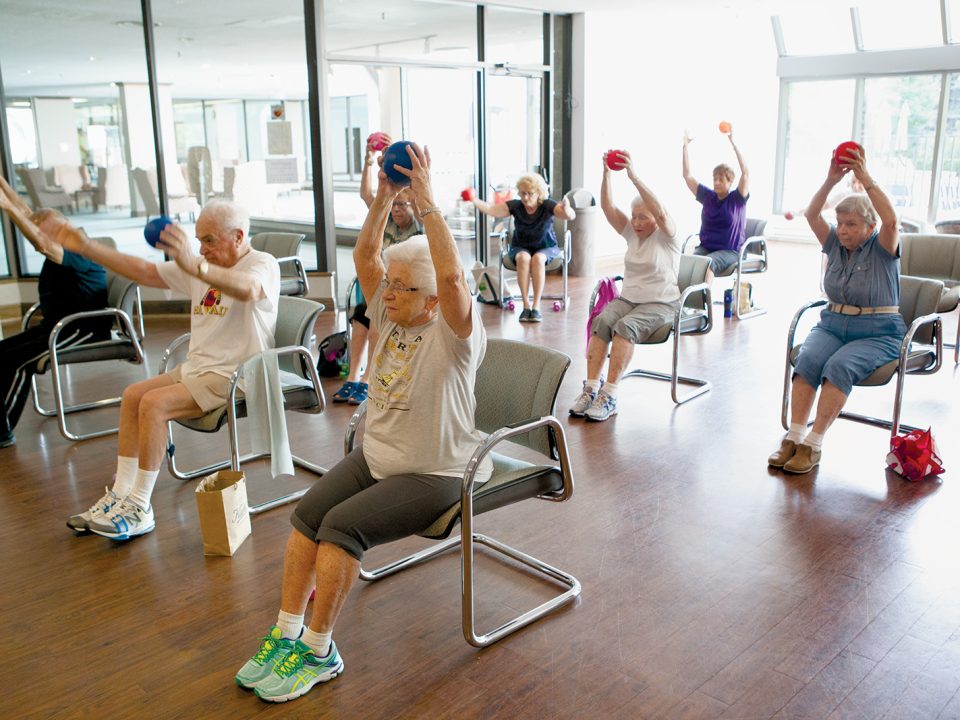
Café at residential aged care home offers employment for people with disability
January 6, 2019
Massage Therapy for Elderly
January 13, 2019Positive outcome for mental health initiative targeting residential care

Positive outcome for mental health initiative targeting residential care
It is often challenging for older adults to make the transition into aged care. Many new residents experience grief as they are leaving behind their homes, spouses and possessions. Being placed into an unfamiliar environment with new people can lead to social isolation. Anxiety and depression rates are also higher for aged care residents than the general population.
Consequently, many residents need somebody to listen to them and understand their situation. In 2015, The Caring for Residents of Aged Care Program was created by Change Futures to provide a service to assist with these issues. Originally, the program was delivered to St Vincent’s Aged Care in Brisbane’s north side. Since February 2017, the program has spread across 15 different facilities and has been delivered to more than 500 residents.
Julie Aganoff, program founder and executive director of Change Futures, explained that there is a strong need for their services in residential aged care.
“We originally started working in residential aged care as we knew that residents could not access Medicare rebates for psychological services and very few could afford to pay full fee for a psychologist to visit them in the facility,” Julie said. “Given the needs of this very frail and very old client group, we saw this as a big gap in service delivery so we decided to do something about it. We worked for free for 18 months before we were able to attract funding for this service.”
The Caring for Residents of Aged Care Program offers both individual and group therapy to residents. The type of therapy is tailored to the cognitive capacity and medical needs of the resident. Cognitive behaviour therapy is the gold standard for treatment for depression and anxiety but this approach needs good cognitive capacity. Reminiscence therapy is valuable for those with some loss of capacity as long term memory tends to remain intact for longer with people with dementia. This approach is used also in the groups as it helps build social connection among the residents.
Outcomes
The Caring for Residents of Aged Care Program has resulted in positive outcomes for aged care residents. Clinically significant reductions in psychological distress, anxiety and depression have been found, with one resident saying, “I always feel so much better when you have been.” Many staff members have observed an increase in mood among residents. One staff member reported: “I am seeing residents smile – I haven’t seen this for a long time.”
The program has also led to clinically significant improvements in life satisfaction. One new resident and client of the program commented: “We were at that house for thirty years. It’s been a hard move. Thanks for taking the time out to talk to us. It helps to talk about it.” Staff members and residents have also noticed social adjustments among residents and staff had improved. One staff member reported: “We are seeing some residents who were isolating themselves in their rooms now participating in activities.”
Case study
A is an 87-year-old living at St Vincent’s Care Services. A has always had a positive attitude towards life and has no history of mental health issues. However, A was recently diagnosed with Alzheimer’s Disease, and became concerned about her decline in mood in the afternoon, memory and cognition. A attended a weekly conversation group run by Change Futures combined with one on one counselling sessions that were focused on reminiscence therapy. A has reported that the group sessions allow her to feel valued in sharing her many stories. Regarding her counselling sessions, A has reported a reduction in psychological distress. “It’s so good for me to talk to you because it makes me think, makes me remember and that’s good for my brain, thank you.”
Future of Change Futures
Change Futures supervises approximately 20 provisional psychologists each year. In addition to the Caring for Residents of Aged Care Program, Change Futures offers generalist psychological services as well as specialist services for Indigenous populations, refugees, people with disabilities and carers.
 Aganoff said she hopes that funding will be increasingly available for this program to enable access to more residents of aged care facilities. “It is wonderful that the Commonwealth government has recognised the mental health needs of vulnerable older people and is responding to address this issue. We have had tremendous support from the Brisbane North Primary Health Network and St Vincent’s Care services to deliver this program. So far more than 500 residents have benefited, we would like to see every resident have access to mental health support as they face the challenges of this final stage of life.”
Aganoff said she hopes that funding will be increasingly available for this program to enable access to more residents of aged care facilities. “It is wonderful that the Commonwealth government has recognised the mental health needs of vulnerable older people and is responding to address this issue. We have had tremendous support from the Brisbane North Primary Health Network and St Vincent’s Care services to deliver this program. So far more than 500 residents have benefited, we would like to see every resident have access to mental health support as they face the challenges of this final stage of life.”
This article was originally published on www.agedcareinsite.com.au on 15/11/2018. Author Tim Lamb.
Tim Lamb has graduated from the University of Queensland with Bachelor of Psychological Science Honours and is now a research officer for Change Futures psychology clinic.










